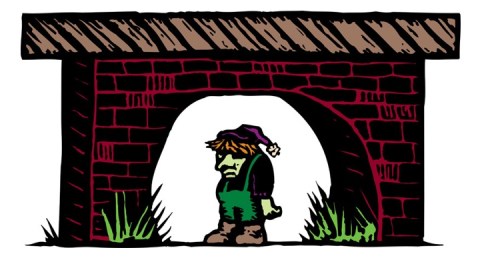A Proposed Solution to Internet Trolls Could Punish Everyone

Should you ever be so bold as to venture out on the internet and post a well-considered thought somewhere about something you care about, the odds are good that some malevolent chucklehead will bring down flaming hatred upon you in the form of an insulting comment clearly intended to hurt, or at the very least, provoke you. What is it with internet trolls? They’re just like the historical trolls in fairy tales, hiding under bridges you cross, just waiting to leap out and bite your ankles or worse.
According to Jonathan Zittrain, trolls just see the internet in a different way than many, or maybe most people. To you it may be a platform for communication or connecting with other people. To a troll, it’s just a game of trying to provoke a reaction that can itself be reacted to in an ever-escalating contest of trash-talk, like people arguing over their favorite sports team. That trolls lack the empathy, compassion, or maybe just imagination, to consider that there may be a human being with feelings on the receiving end of a hurled insult is another story. It’s just a game, though, right? Well, no.
Not only do trolls hurt people’s feelings, the trash talk can escalate to an IRL (“in real life”) threat of violence or exposure of a victim’s sensitive personal information. It can quickly spiral into something way beyond what most of us would consider a game.
Zittrain expects a solution to emerge, which will be great, except that the one he envisions could bring its own nasty dangers.
Though it may solve the troll problem, an internet-wide reputation system could easily evolve into a mechanism of control that silences unpopular — and possibly correct and even necessary — opinions. If Zittrain is seeing the future correctly, we’ll have to decide which is more important: free speech or safety from trolls.
It occurs to me that this internet-wide repetition system may not happen anyway because it seems unrealistic to expect social platforms to exchange user information.
It’s been said that if an internet service is free, you’re the product. And this is clearly true of our current dominant social services Google, Facebook, and Twitter. They all sell what they’ve learned about you to advertisers who can then fire micro-targeted messages at you that reflect what they know to be your interests. The information these platforms hold is valuable, proprietary, and — at least these days — held close. Will they ever agree to share the secret sauce on which their business model is based?





